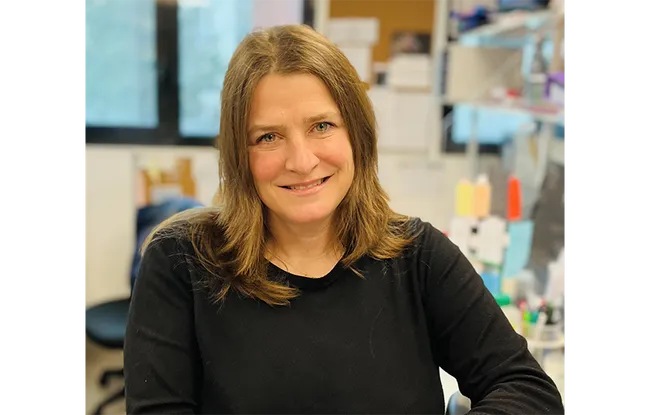- Home >
- Institut Curie News >
- Congratulations to Déborah Bourc’his, winner of an ERC Advanced Grant
Déborah Bourc’his, head of the Epigenetic Decisions and Reproduction in Mammals team within the Genetics and Developmental Biology unit (CNRS UMR3215/Inserm U934/Sorbonne Université), focuses on epigenetic programming of the germline and its impact on reproduction in mammals.
Thanks to the quality of her recent project entitled “Host–transposon interactions in the male germline” (“HOTIMAGE” for short), the European Research Council awarded her €2.5M in funding over a five-year period to see her research through to completion.
Human genome sequencing revealed that our DNA is primarily made up of transposons, not genes. These transposable elements are often derived from viruses that take up permanent residence in our DNA as they evolve, and have the ability to jump around and multiply. Older transposons have become inert, and can be harnessed to reveal new genes or control fundamental physiological processes. More recent transposons, however, are a threat due to their ability to disrupt genes and cell functions, and are subjected to close cellular control to inhibit their expression. When they are reactivated, they are detrimental to people’s health (as in the case of cancer), and to the survival of the species in their ability to cause infertility.
Through the HOTIMAGE project, Déborah Bourc’his and her team will set out to study how the most active transposons and male reproductive cells interact.
How does future sperm “tidy away” transposons within the three-dimensional architecture of its nucleus in order to temper them or potentially exploit them? When this order is disrupted, why do transposons become toxic, thus triggering infertility? In a bid to answer these questions, the team will draw on ground-breaking techniques such as epigenome editing to control transposon activity in vivo, as well as single-cell multimodal profiling and microscopy.
This funding will allow us to deploy advanced methods in high-throughput sequencing and bioinformatics, processes that are expensive yet essential to completing our research. For the very first time, we will have full control in space and time of transposon activity during development.
Explains Déborah Bourc’his.
In doing so, the team hopes to reveal new, ground-breaking information surrounding the molecular transactions that host genomes and transposons engage in, and on the way in which imbalanced interaction between host and transposons can lead to illness and disease.
To date, Institut Curie’s Research Center has been awarded a total of 64 grants from the ERC since 2007.



